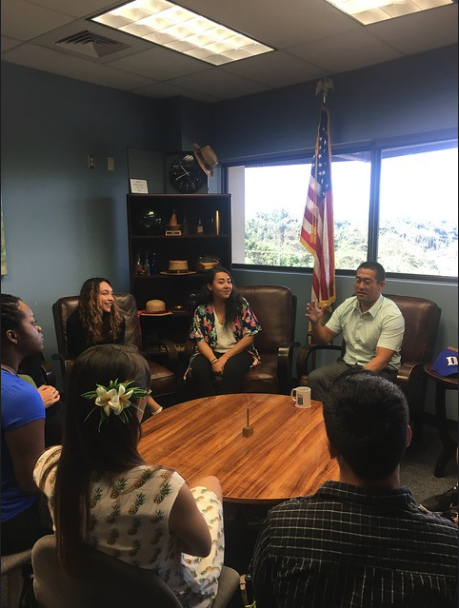New Program Development
Each Duke Immerse program consists of:
- A cluster of four campus-based seminars focused around a significant global challenge (offered spring or fall semester)
- An integrated curriculum reflecting the professors’ research and expertise
- Two or more faculty members, within or across disciplines
- Frequent and meaningful faculty-student interaction
- Classroom learning connected with hands-on experience
- Small enrollments (18 or fewer students)
- Supplemental funding to support student research, field experiences, and experiential learning

Duke Immerse Overview
Duke Immerse is a semester-long program for undergraduates grounded in faculty interests and guided by faculty voices. All Duke faculty are invited to propose a new Duke Immerse. Successful proposals are clearly articulated and build on the faculty team’s expertise. These may include proposals that are fully disciplinary or interdisciplinary, and that incorporate Service-Learning or complement an existing Bass Connections project, DukeEngage program, or FOCUS theme. Proposals that diversify recent Duke Immerse opportunities and reflect the expertise of Duke faculty receive priority.
Individual programs are often research-intensive and should include off-campus experiences to enhance the curriculum. Programs involving travel are expected to follow related university policies and meet with the Duke Immerse Program Director and the Office of Global Health and Safety (OGHS) to develop a risk management plan prior to the program offering.
Propose a New Program:
A full proposal includes:
- Statement of Intent which includes a detailed description of overall concept(s) and theme(s)
- List of faculty and staff* who will be involved in the teaching and mentoring; (please denote who the lead faculty member for this program will be)
- Course information, including:
- Course titles
- Designation of courses as new or existing and, if new, whether or not the courses have been approved
- Short course descriptions, including learning objectives for each course
- Course attributes (e.g., seminar, service-learning, modes of inquiry, areas of knowledge)
- Assessment plan
- Target student audience
- Travel and field experience plans, including duration, location(s), and relevance to the program theme
- Identification of community partners to be involved on campus and during field experience and how they will be engaged
- Letter of support from the department chair(s)
- Preliminary budget and budget justification**
**Budget Note
The Duke Immerse programs are supported in part by a gift/endowment which was established upon its founding in 2009. In addition to that partial support, students are charged a program fee (between $500-$1,500, depending on the program budget) designed to help close the gap between the Immerse endowment and the cost of running the field experience and other activities associated with the programs.
Deadlines:
New Fall 2026 and Spring 2027 Programs – Full proposals are due by October 15, 2025
Proposal Review Process:
Send the full proposal to Duke Immerse Program Director Susan Pratt (pratt.susan@duke.edu) by October 15, 2025. Once the program proposal has been reviewed by the Program Director and the Immerse Committee, the Program Director will collaborate with the designated lead faculty about the next steps, developing the proposal, and planning for and launching the program for the intended semester.
Duke Immerse Proposal Review Committee:
The Review Committee is comprised of Experiential Education staff and experienced Immerse faculty.
Questions?
Contact Duke Immerse Program Director Susan Pratt (pratt.susan@duke.edu) if you are interested in brainstorming about potential proposals or have questions about the program or process.
* Staff may include post-doctoral fellows, student teaching assistants, and/or program coordinators; all credit-bearing courses must be led by someone with a terminal degree (e.g., doctoral degree, J.D.).